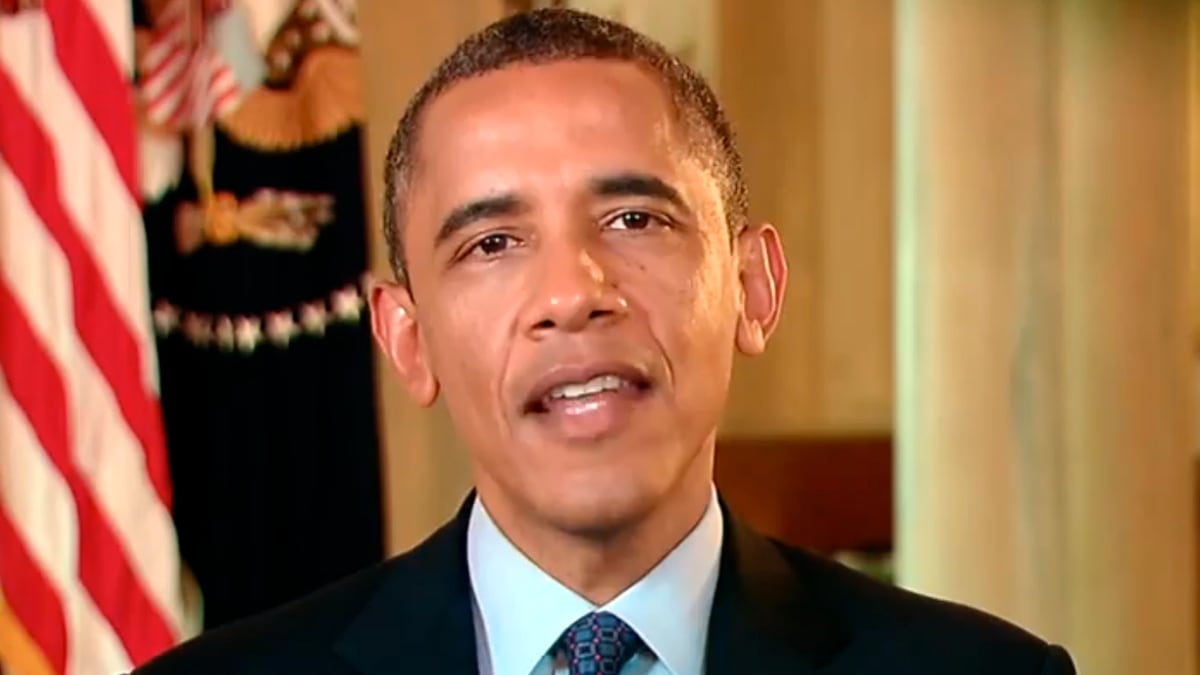On Saturday evening, during the final plenary session at this year’s Netroots Nation conference, the comedian Elon James White mocked journalists for dwelling on progressive disaffection with Obama. “Hey, media, fall the fuck back,” he said. “Yes, I can critique the president ... But at the same time, I can also support him against the crazy folks who are trying to destroy the damn country.” The crowd cheered and applauded.

A few minutes later, White introduced a video address from Obama. It wasn’t on the official schedule and had been poorly publicized during the previous days; half the people I spoke to didn’t know it was happening. This time, the clapping was sparse. Reports of liberal disillusionment, it turns out, weren’t entirely exaggerated.
The most striking thing about the seventh annual Netroots Nation, held this year in Providence, R.I., wasn’t really hostility to Obama. Rather, it was that there was simply so little Obama presence. No administration officials spoke. The Obama campaign had a single small booth in the sprawling exhibition hall, no different than the booths for sundry other progressive causes. Few of the panel sessions dealt with the presidential election, and those that did were mostly about attacks on voting rights and the malign influence of super PACs. I kept comparing it to the annual Conservative Political Action Committee conference, where, even when the right was angriest with George W. Bush, senior administration officials like Dick Cheney always showed up and received rapturous receptions.
The decision to maintain a certain distance between the Obama team and Netroots Nation, a liberal conference that originally grew out of the Daily Kos blog, appears to have been mutual. During a public dialogue at last year’s event, a Daily Kos editor was unexpectedly aggressive in questioning White House Communications Director Dan Pfeiffer. At one point, Pfeiffer’s evasive answer on the president’s position on gay marriage elicited boos—and made headlines. The administration was likely afraid to risk such a confrontation again.
Netroots organizers, meanwhile, didn’t go out of their way to lure White House officials. “We certainly opened the door for either the president or the vice president to come, and if the schedule worked out, that would be great,” says Mary Rickles, Netroots Nation’s communications director. But, she says, there was no discussion of having anyone else. Instead, the conference put its focus elsewhere, on things like economic inequality, criminal-justice reform, and gender issues. Most people at Netroots Nation, says Rickles, “would say that, yeah, we recognize that reelecting the president is extremely important, but it’s not the only goal of our activism right now.”
There was particular anger over the president’s record on immigration. As panelists pointed out at a session on the Latino vote, he has presided over more deportations than any president in history—around 400,000 a year. They understand that, as long as there’s a Republican House, Obama can do little to advance the DREAM Act, which would provide a path to citizenship for college graduates and military veterans who were brought as illegal immigrants into the United States as children. But they’re furious with the president’s refusal to use his administrative authority to halt the deportation of such people.
Gaby Pacheco, a DREAM activist who was brought to the United States from Ecuador when she was 7, compared Obama’s relationship with the Latino community to domestic abuse. People in abusive relationships, she said, try to tell themselves that their partners really love them, despite their cruelty. “That, I feel, is the situation that we’re in,” she says. “And it’s very hard and difficult for a lot of people to stand up to their abusers and say, enough, no more.”
To be sure, few of the thousands of Netroots Nation’s attendees share Pacheco’s outright rejection of the president. Still, for Democrats, the lack of enthusiasm among this group of committed, technologically savvy progressives should be cause for concern. The Obama campaign is surely frustrated by how quickly some liberal activists discount the president’s very real achievements—health-care reform, the end of “don’t ask, don’t tell,” the rescue of the American auto industry. In the end, though, stoking the base’s enthusiasm is part of a campaign’s job, whether or not it thinks it should have to do it.
I asked Daily Kos founder Markos Moulitsas if he was worried about the level of despair at the conference. He replied, “The administration should be worried about the level of despair here.” Like many attendees, he brought up the failed recall election in Wisconsin. The Republicans, he pointed out, sent all sorts of surrogates to the state to campaign for Gov. Scott Walker. “Obama stayed away,” he says. “Why? Because he would be embarrassed if he lost. I’ll tell you what. If he shows that he’s going to fight for the things that I care about, I will fight twice as hard for him.” And if he doesn’t? “Then I’ll vote for him,” says Moulitsas.





